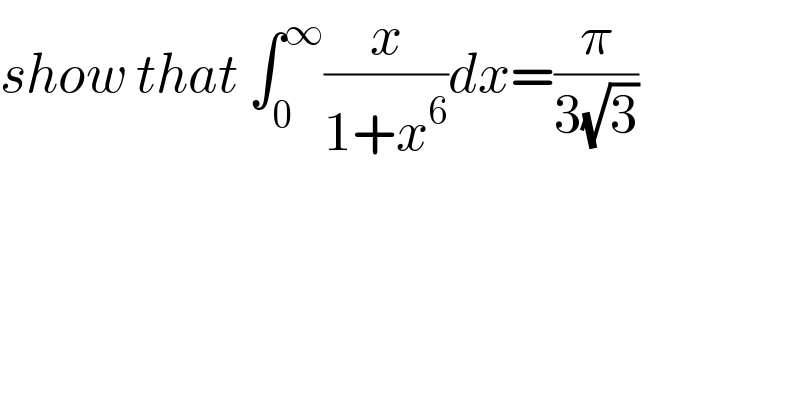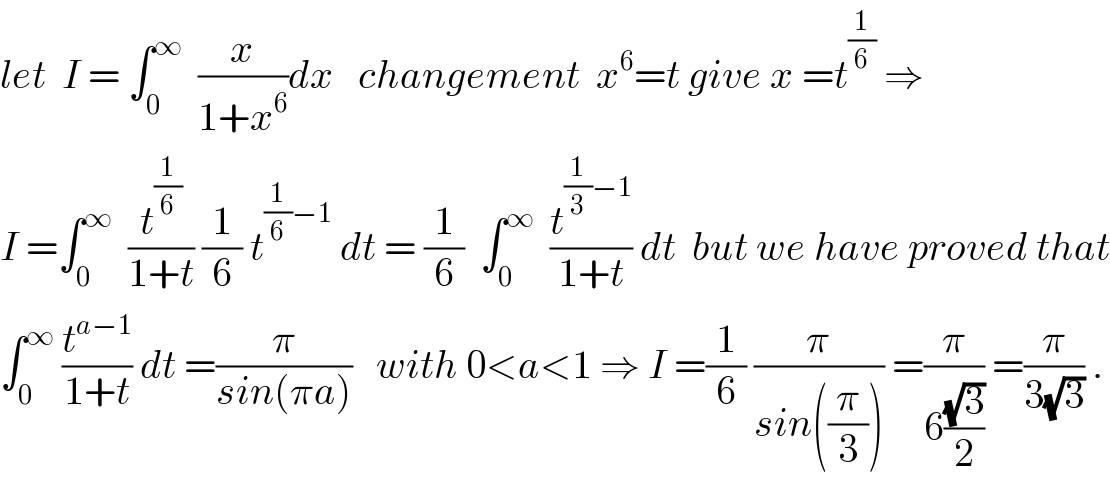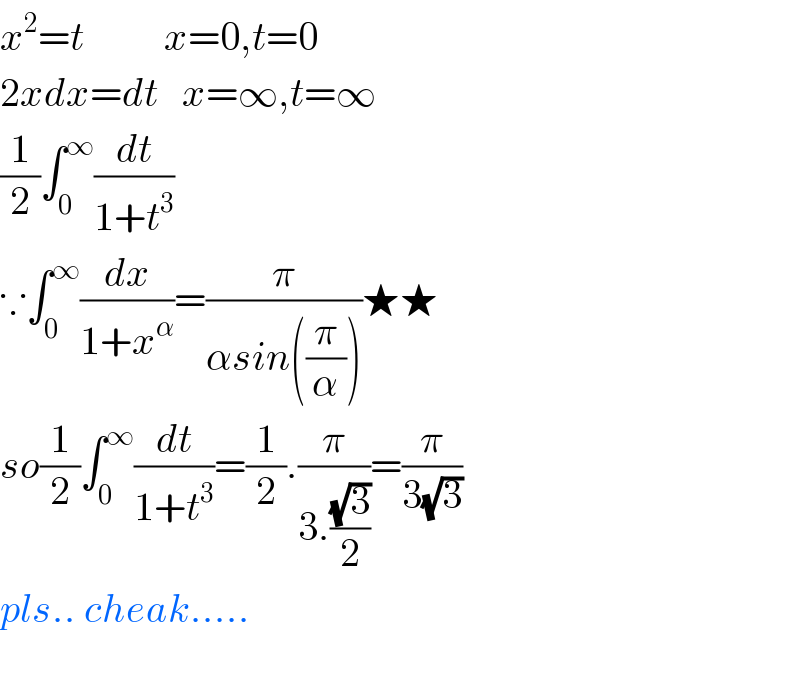
Question and Answers Forum
Question Number 54585 by peter frank last updated on 07/Feb/19

Commented by maxmathsup by imad last updated on 07/Feb/19

Answered by arvinddayama00@gmail.com last updated on 08/Feb/19

Commented by peter frank last updated on 07/Feb/19

Commented by rahul 19 last updated on 08/Feb/19

Commented by tanmay.chaudhury50@gmail.com last updated on 08/Feb/19
![x^α =tan^2 θ x=(tanθ)^(2/α) dx=(2/α)(tanθ)^((2/α)−1) (sec^2 θ)dθ ∫_0 ^(π/2) (2/α)(tanθ)^((2/α)−1) dθ (2/α)∫_0 ^(π/2) (sinθ)^((2/α)−1) (cosθ)^(1−(2/α)) dθ now gamma beta function formula 2∫_0 ^(π/2) (sinθ)^(2p−1) (cosθ)^(2q−1) dθ=((⌈(p)⌈q))/(⌈(p+q))) now here 2p−1=(2/α)−1 so p=(1/α) 2q−1=1−(2/α) so q=(1−(1/α)) now answer is=(1/α)×((⌈((1/α))⌈(1−(1/α)))/(⌈(1)))=(1/α)×(π/(sin((π/α)))) [again formula ⌈(a)⌈(1−a)=(π/(sin(aπ)))]](Q54623.png)
